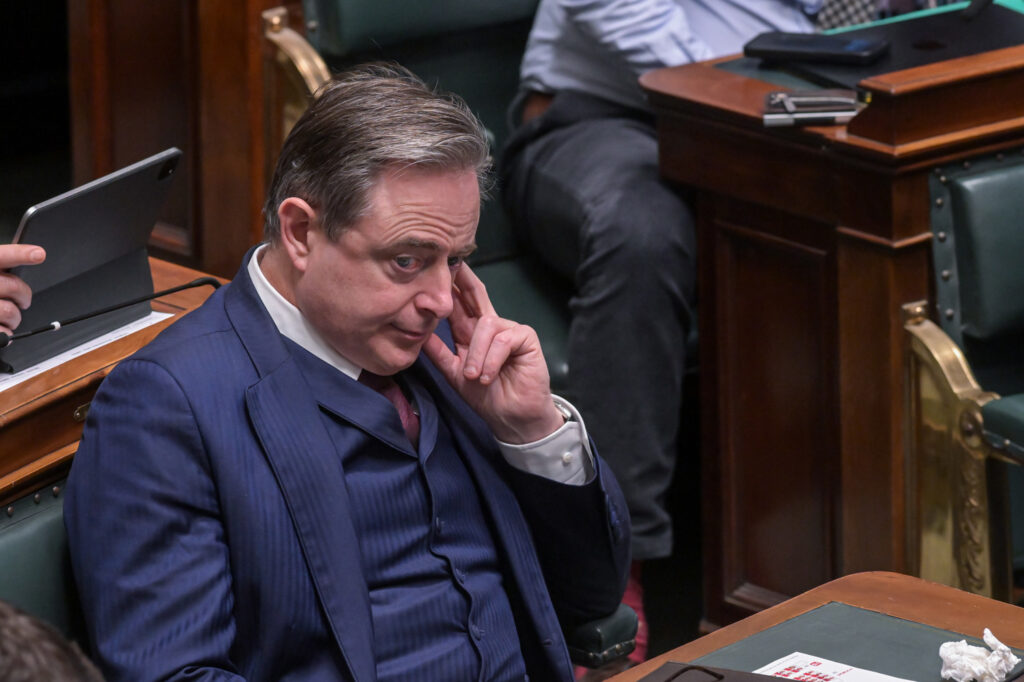Europe is demanding that Belgium reduce its structural budget deficit by €3 billion per year. However, the Federal Government will at best only realise half of this, De Tijd reports.
To comply with new European rules, Belgium must reduce its structural budget deficit from 4.4% of the gross domestic product (GDP) in 2024 to 1.5% of the GDP by 2029. This implies a "budgetary effort" of 0.7% or around €5 billion per year for the period 2025-2028. However, Europe offered Belgium a less painful route, allowing it to spread these cuts over seven years instead of four, amounting to 0.5% or €3 billion per year.
Prime Minister Bart De Wever (N-VA) has only just taken his seat as leader of the country and the odds are already stacked against him. Of the €3 billion that Europe is demanding in budgetary "reorganisation" he will likely only be able to realise half at best. This is due to a the long period of negotiations, rising defence costs, and gambles on future revenues, De Tijd reports.
One lost year
Negotiations to agree on a federal coalition took 234 days – a lengthy period of deliberation which came at a cost. Many planned reforms (and therefore the money they will bring) have been postponed, including the migration reform, changes to VAT, the fight against fraud and savings in the government apparatus.
As a result, 2025 risks becoming a lost year for the Belgian budget – the Arizona government has (more diplomatically) described 2025 as a "transition year". Government sources attribute a €1.4 billion gap to the formation talks dragging on for too long.
Meanwhile, Defence Minister Theo Francken (N-VA) and army chief Frederik Vansina demand that Belgium moves faster towards the NATO standard of 2% of GDP in line with NATO commitments before 2029. NATO’s latest defence spending report estimated that in 2024 Belgium was spending just 1.3% of its GDP on defence – the fourth lowest member in terms of defence spending. To make its commitments, the country will have to increase the defence budget from €8 billion to €12 billion, money that will have to be found elsewhere.
Francken has endorsed a special Defence Fund which would gather dividends and proceeds from the sale of government bonds. But fluctuations in the stock markets make it hard to estimate how much revenue this might bring.
Meanwhile, the De Wever government had anticipated keeping €770 million in defence spending outside the budgetary objectives, but this is not a given. Several EU Member States believe military investments should only be excluded from budget calculations if they exceed the NATO target. But Belgium is still much below.
Related News
- Brussels Government talks fail: What happens next?
- De Wever's plans 'insufficient' to quickly get budget in order, says National Bank
Europe could build an escape clause into its new budgetary framework that would allow Member States to make military investments outside the budgetary norm. If it refuses this exception, Belgium's budgetary reorganisation will amount to a meagre €663 million instead of the requested €3 billion.
The European Commission will consider the Belgian budget at the end of March, but its calculations assume reforms take effect from 1 January 2025, which is not the case. Budget minister Vincent Van Peteghem (CD&V) is already trying to appease the European Commission. "A deficit has arisen due to the slow formation, but we will look together at how we can realign the trajectory with reality," he said.

